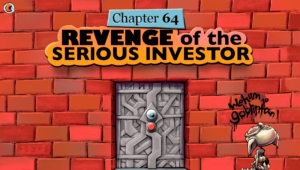
The U.S. Securities and Exchange Commission (SEC) has recently charged Stoner Cats 2 LLC (SC2) for unregistered NFT (non-fungible token) offerings, setting a crucial precedent for future NFT initiatives. Here’s a breakdown of the event and its potential implications:
What Happened?
The SEC alleges that SC2 had carried out an unregistered crypto asset securities offering by selling non-fungible tokens (NFTs) to the public. These sales were intended to fund an animated web series titled Stoner Cats. Within just 35 minutes, the project sold over 10,000 NFTs at $800 each, accumulating about $8 million.
“Registration of securities, including crypto asset securities, protects investors by providing them with disclosures so they can make informed investing decisions,” said Carolyn Welshhans, Associate Director of the SEC’s Home Office. “Stoner Cats wanted all the benefits of offering and selling a security to the public but ignored the legal responsibilities that come with doing so.”
Key elements of the SEC’s findings include:
- The marketing campaign around the NFTs, which emphasized potential profits.
- The ability for owners to resell these NFTs on secondary markets.
- The 2.5% royalty SC2 would gain from each secondary transaction.
- The fact that these NFTs were sold as potential profit sources instead of mere collectibles.
What Does This Mean for NFTs?
The SEC’s action against SC2 illustrates the grey area where NFTs currently reside in the realm of securities law. This case emphasizes several takeaways:
- Economic Reality over Labels: The SEC has highlighted that the nature of an offering is determined by its economic reality rather than its label. Even if something is promoted as an NFT, if it operates like a security, it will be treated as one.
- Registration is Crucial: The case underscores the importance of registering securities, even those in the crypto domain, to safeguard investors. The registration process ensures investors are well-informed and provided with necessary disclosures.
- Promises of Profit: The way an NFT is marketed can affect its classification. If it’s promoted as a potential source of profit, rather than a collectible or a piece of art, it might be seen as a security. NFT projects should be wary of making claims about future profits or returns.
Dissent from the SEC
However, not everyone within the SEC agrees with this action. A recent statement dissenting from the SEC’s decision points out that:
- Lack of Limiting Principle: The application of the Howey investment contract analysis to NFTs lacks a solid limiting principle, meaning it’s unclear where the line will be drawn.
- Stifling Creativity: Treating NFTs the same way as physical collectibles could deter artists. There’s a concern that creativity might be hampered due to the ambiguity of legal regulations.
- Need for Clear Guidelines: Instead of sporadic enforcement actions against NFT initiatives, the statement suggests that there should be well-defined guidelines. Artists and creators need clarity to understand if, and how, securities laws might apply to their work.
- Monetization and Artists: Many artists struggle to financially support their craft. NFTs present a novel avenue for monetization. Just because monetary transactions are involved doesn’t necessarily equate NFTs to securities.
Wow! SEC commissioners Peirce and Uyeda just released a statement saying they DISAGREE with the SEC’s actions against Stoner Cats nfts
Comparing nfts to 1970s Star Wars collectables, and stating the need to protect artists’ ability to create without excessive legal constraints🤯 pic.twitter.com/w7xOCI0grv
— OKHotshot (@NFTherder) September 13, 2023
Broader Implications and The Way Forward
The SEC’s action against SC2 and the subsequent dissent highlight the tension between regulating a burgeoning digital market and fostering creativity. The challenge for the SEC and other regulators will be to strike a balance. As the NFT market evolves, it’s pivotal that artists and creators are provided with lucid guidelines, ensuring that innovation isn’t stymied due to regulatory apprehensions.
In sum, while the SEC’s move sets a tone for NFT regulations, there’s a palpable need for clarity. As the industry expands and more creators dive into the world of NFTs, they deserve definitive guidance on navigating the intricacies of securities laws. This will not only protect the rights of creators and investors but also preserve the innovative spirit that defines the world of NFTs.
- SEO Powered Content & PR Distribution. Get Amplified Today.
- PlatoData.Network Vertical Generative Ai. Empower Yourself. Access Here.
- PlatoAiStream. Web3 Intelligence. Knowledge Amplified. Access Here.
- PlatoESG. Automotive / EVs, Carbon, CleanTech, Energy, Environment, Solar, Waste Management. Access Here.
- PlatoHealth. Biotech and Clinical Trials Intelligence. Access Here.
- ChartPrime. Elevate your Trading Game with ChartPrime. Access Here.
- BlockOffsets. Modernizing Environmental Offset Ownership. Access Here.
- Source: https://www.nftculture.com/nft-lawsuits/sec-charges-stoner-cats-for-unregistered-nft-offering-implications-for-the-future-of-nfts/
- :has
- :is
- :not
- :where
- 000
- 10
- 13
- a
- ability
- About
- Action
- actions
- affect
- against
- All
- alleges
- also
- Ambiguity
- an
- analysis
- and
- Application
- Apply
- ARE
- AREA
- around
- Art
- Artists
- AS
- asset
- Associate
- At
- Avenue
- Balance
- BE
- because
- benefits
- between
- blockchain
- Breakdown
- but
- by
- Campaign
- CAN
- carried
- case
- Cats
- challenge
- charged
- charges
- claims
- clarity
- classification
- clear
- Collectible
- collectibles
- come
- commission
- Concern
- contract
- could
- craft
- create
- creativity
- creators
- crucial
- crypto
- Crypto Art
- crypto asset
- Culture
- Currently
- decision
- decisions
- Defines
- definitive
- deserve
- determined
- digital
- Director
- Disclosures
- dive
- does
- Doesn’t
- doing
- domain
- drawn
- due
- each
- Economic
- elements
- emphasized
- emphasizes
- enforcement
- ensures
- ensuring
- Even
- Event
- everyone
- evolves
- exchange
- Exchange Commission
- expands
- fact
- financially
- findings
- For
- fostering
- from
- fund
- future
- Gain
- guidance
- guidelines
- had
- happened
- Highlight
- Highlighted
- Home
- Home Office
- How
- Howey
- HTTPS
- if
- illustrates
- implications
- importance
- in
- include
- Including
- industry
- informed
- initiatives
- Innovation
- innovative
- instead
- intended
- into
- intricacies
- investing
- investment
- Investors
- involved
- IT
- ITS
- jpg
- just
- Label
- Law
- Laws
- Legal
- like
- Line
- LLC
- lucid
- make
- Making
- many
- Market
- Marketing
- Markets
- mean
- meaning
- mere
- might
- million
- minutes
- Monetary
- monetization
- more
- move
- Nature
- navigating
- necessarily
- necessary
- Need
- news
- NFT
- nft market
- nft news
- NFT projects
- NFTs
- non-fungible
- non-fungible token
- non-fungible tokens
- NON-FUNGIBLE TOKENS (NFTS)
- novel
- of
- offering
- Offerings
- Office
- on
- ONE
- only
- operates
- or
- Other
- out
- over
- owners
- palpable
- physical
- piece
- pivotal
- plato
- Plato AiStream
- Plato Data Intelligence
- PlatoAiCast
- PlatoData
- points
- potential
- Precedent
- present
- principle
- process
- Profit
- profits
- project
- projects
- Promoted
- protect
- provided
- providing
- public
- rather
- Reality
- realm
- recent
- recently
- registering
- Registration
- regulating
- regulations
- Regulators
- regulatory
- released
- resell
- responsibilities
- returns
- rights
- royalty
- s
- Said
- sales
- same
- saying
- SEC
- SEC charges
- secondary
- Secondary Markets
- Securities
- Securities and Exchange Commission
- Securities Laws
- security
- seen
- Selling
- Series
- Sets
- setting
- several
- should
- So
- sold
- solid
- something
- Source
- Sources
- spirit
- Star
- Star Wars
- Statement
- stating
- strike
- Struggle
- subsequent
- Suggests
- support
- Takeaways
- than
- that
- The
- The Future
- the world
- their
- Them
- There.
- These
- they
- this
- those
- titled
- to
- token
- Tokens
- TONE
- transaction
- Transactions
- treated
- treating
- true
- u.s.
- U.S. Securities
- U.S. Securities and Exchange Commission
- U.S. Securities and Exchange Commission (SEC)
- underscores
- understand
- unregistered
- wanted
- Way..
- web
- Web3
- well-defined
- were
- which
- while
- will
- with
- within
- without
- Work
- world
- would












